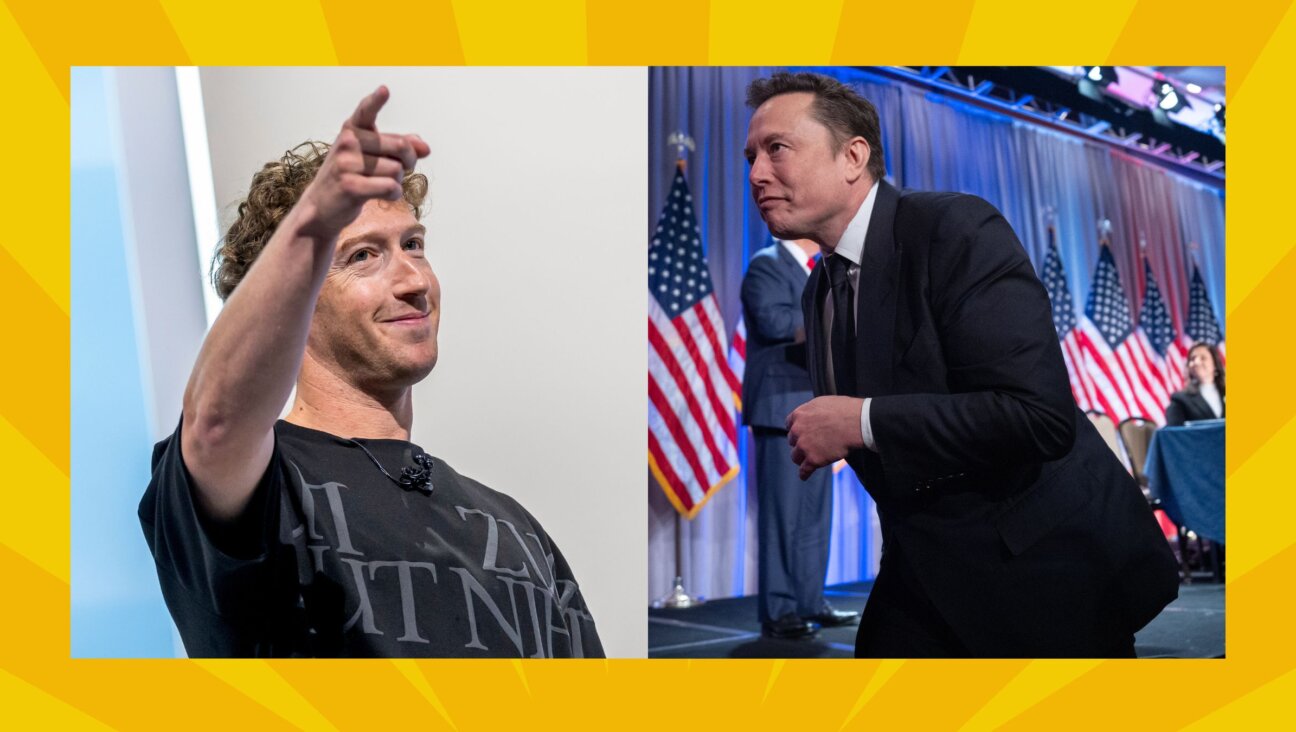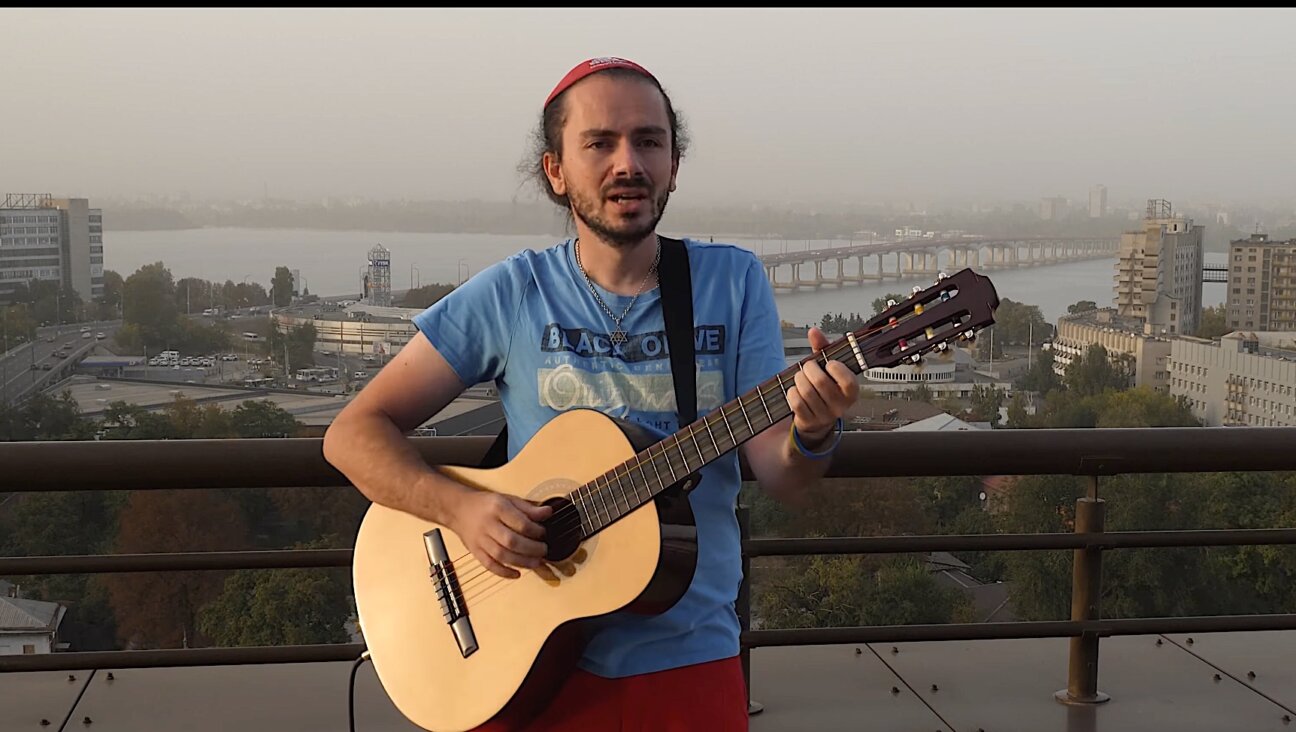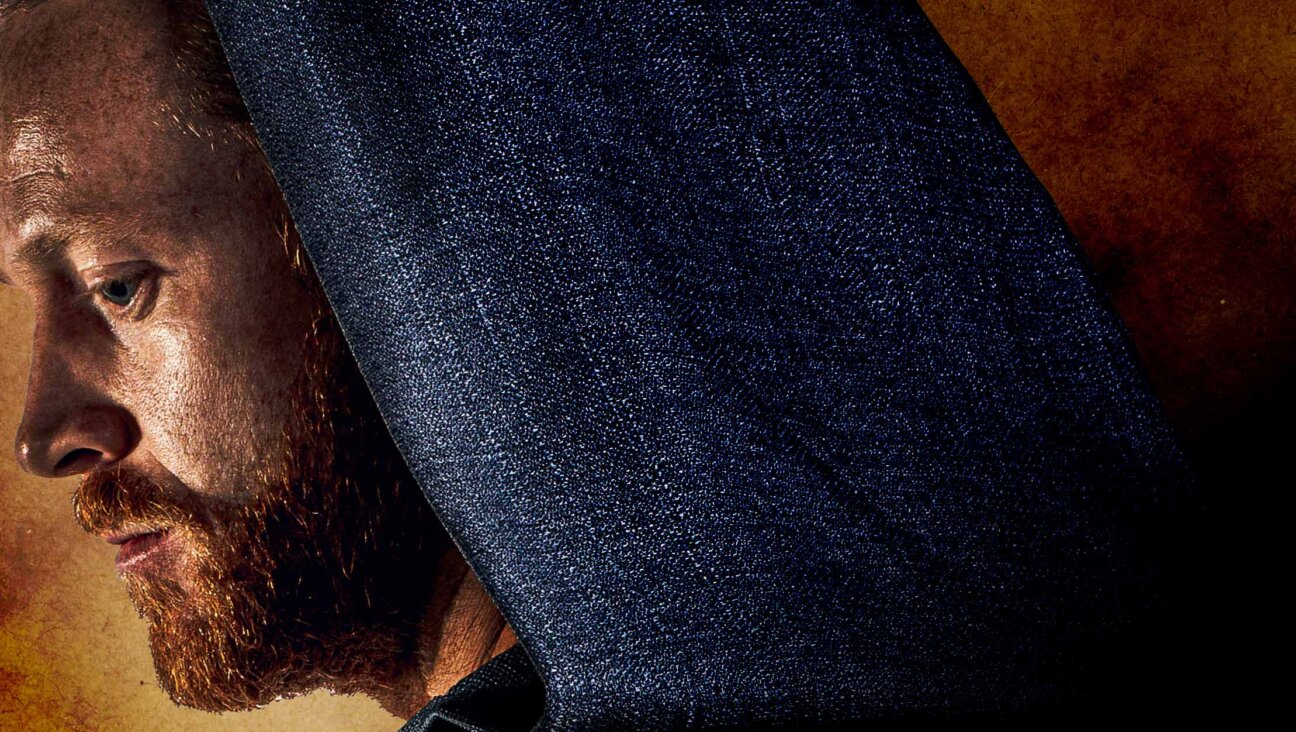Organizations Divided Over Anti-Drug Campaign
WASHINGTON — A Bush administration attempt to enlist churches, mosques and synagogues in the fight against teenage drug use is dividing Jewish organizations, but not along usual lines.
The White House initiative has drawn support from B’nai B’rith Youth Organization and United Jewish Communities, the roof body of Jewish community federations in North America. But several Jewish civil-rights organizations are warning that even though the program does not call for direct funding of religious organizations, it could end up breaching the wall between church and state.
“The devil of such initiatives is in the details, and the details are not clear yet,” said the Anti-Defamation League’s assistant director for legal affairs, Steven Sheinberg. “We’ll have to closely follow this as it is applied and see how it plays out.”
Launched last week at a press conference in Washington, the new campaign was organized by the White House’s Faith Based Initiative office and the White House Office of National Drug Control Policy. The campaign features a booklet that can serve as a guide for religious institutions working to prevent teen drug use, a Web site, an e-mail newsletter and a new brochure.
At the press conference, in response to a question from the Forward, the federal drug czar, John Walters, dismissed concerns that the new program could end up violating the separation of church and state. “The Constitution was not designed to say that people who have religious faith are a pariah to America and in America,” Walters said. “It was designed to allow religious freedom.”
A top UJC official, Rabbi Eric Lankin, took part in the press conference and also rejected constitutional concerns about the program. Lankin, UJC’s director of religious and educational activities, said that the program does not involve “government funding for use in religious activities.”
Following the press conference, Lankin seemed to criticize other groups when he said: “It is very easy to say no, and it is sophisticated to develop a nuanced response.” He praised his own organization for formulating a “nuanced response” to the program.
The new initiative includes resources that were tailored for religious institutions and tested during the past four years in several synagogues, mosques and churches. The guide to drug prevention — 75,000 of which have been printed for circulation among faith-based institutions at a cost of $115,000 — makes a few specific references to religion or God. It includes proposed activities for religious youth instructors such as leading a mock conversation between the holy book of the congregation and a six-pack of beer, juxtaposing the values of the Koran or the Bible regarding alcohol use against the risks that the six-pack represents.
Some Jewish groups and non-sectarian civil liberties organizations, including Americans United for the Separation of Church and State, warn that the program could represent a “slippery slope” ending with the government directly funding religious organizations. The Supreme Court has ruled that houses of worship cannot directly receive taxpayer dollars because government funding and monitoring of these institutions would violate the Establishment Clause of the First Amendment.
The White House is already pushing legislation in Congress that would allow faith-based organizations to receive money through a voucher system for running drug rehabilitation programs. Under that White House initiative, first announced by President Bush in January during the State of the Union Address, the federal government would offer $600 million over the next three years to the states for drug rehabilitation programs. The states would distribute the funds through a voucher system to recovering addicts who — for the first time — would be able to use these federally funded vouchers in rehabilitation clinics run by religious groups. The Departments of Labor and Health and Human Services appropriations bill, currently pending in the House of Representatives, includes a $100 million provision allowing the use of such vouchers in clinics run by religious institutions.
Civil rights activists are concerned that such programs would become forums for proselytizing. Ethan Felson, director of domestic concerns at the Jewish Council for Public Affairs, a body representing 13 national Jewish organizations and 123 local community relations councils, described such programs as ones “where you pass by Jesus on the way to the methadone.” It starts with funding faith-based rehabilitation, and continues with funding faith-based prevention, he said.
But even short of direct funding, said Felson, the idea that “somebody in the government office is going through and picking texts that are appropriate messages for churches and temples — that makes me uncomfortable.”
Another potentially controversial component of the program is the proposition that clergy and school staff will cooperate in drug prevention. The court has taken issue with clergy playing a role in public schools.
Critics also object to what they say is the government’s promotion of faith as a preferred tool for drug prevention. “There can be appropriate relations between religious institutions and government institutions, in which they both try to help people who need help,” said the American Jewish Committee’s legislative director, Richard Foltin. “But the key is not to do it in a way that puts the government’s power and authority behind the religious institutions,” as opposed to non-sectarian ones.
“To the extent that the government is in the business of tailoring religious messages — that definitely raises questions,” Foltin said.
A message from our CEO & publisher Rachel Fishman Feddersen

I hope you appreciated this article. Before you go, I’d like to ask you to please support the Forward’s award-winning, nonprofit journalism during this critical time.
At a time when other newsrooms are closing or cutting back, the Forward has removed its paywall and invested additional resources to report on the ground from Israel and around the U.S. on the impact of the war, rising antisemitism and polarized discourse.
Readers like you make it all possible. Support our work by becoming a Forward Member and connect with our journalism and your community.
— Rachel Fishman Feddersen, Publisher and CEO






















